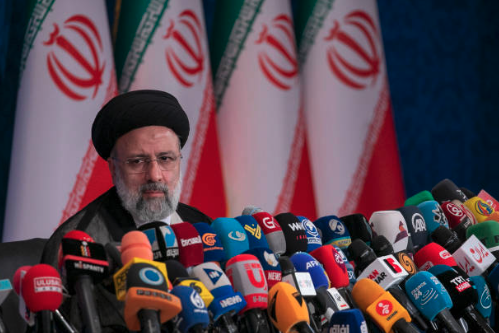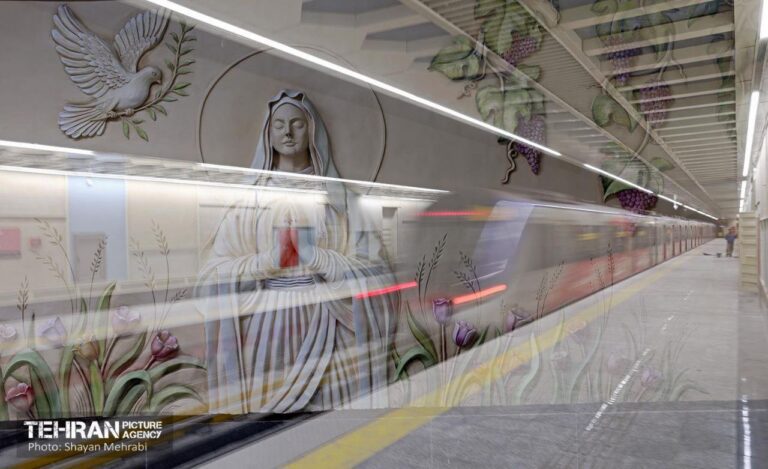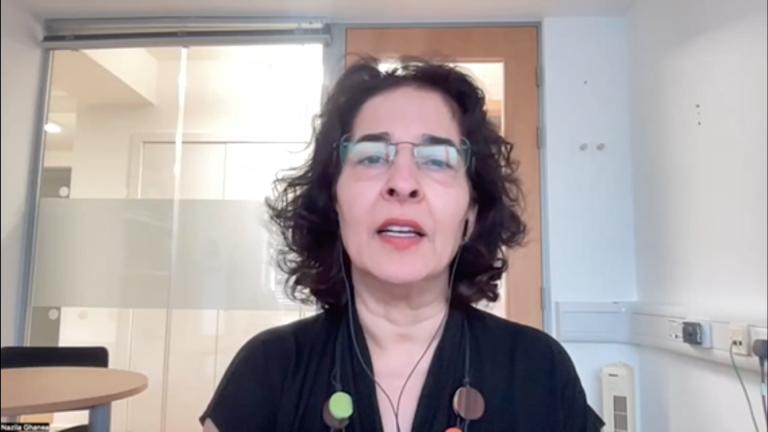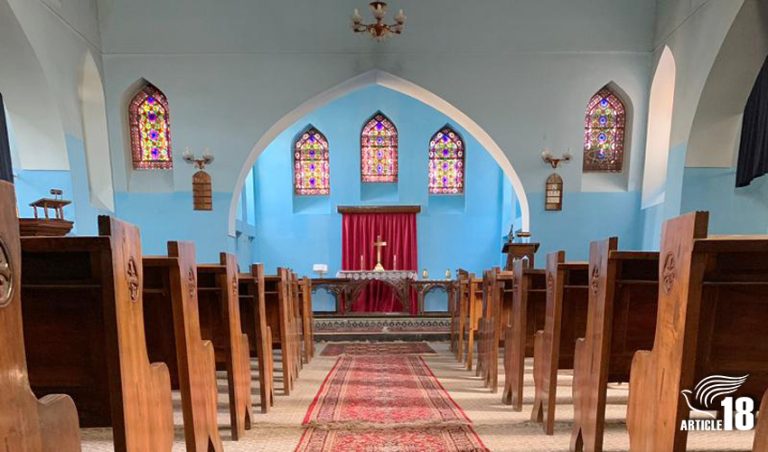As the dust settles on Ebrahim Raisi’s unsurprising election victory, amid record low voter turnout, Article18 assesses what the result means for Iran’s Christians.
Embed from Getty ImagesIn his first press conference yesterday as Iran’s new president-elect, current head of the judiciary Ebrahim Raisi said that in all his endeavours to date, he had always sought to “defend human rights”.
To say that his comments raised a few eyebrows would be something of an understatement.
This is a man who, in 1988, was one of four judges to oversee the mass execution of as many as 5,000 political prisoners.
In the years since, Mr Raisi has overseen countless other rights violations, including the brutal crackdown on dissent in November 2019, when as head of the judiciary the killing of more than 300 peaceful protesters took place under his direct supervision.
As the US-based Center for Human Rights in Iran put it, “Since Raisi was appointed as judiciary chief by Supreme Leader Ali Khamenei in March 2019, violent repression and human rights abuses have not only continued unabated, they have intensified.”
CHRI executive director Hadi Ghaemi said: “As president, Raisi has a duty to enforce the Constitution and defend the rights of citizens, and yet as Judiciary Chief, he has been responsible for countless, severe violations of citizens’ rights by the judicial branch.”
Amnesty International’s reaction to Raisi’s victory was similarly scathing:
“That Ebrahim Raisi has risen to the presidency instead of being investigated for the crimes against humanity of murder, enforced disappearance and torture, is a grim reminder that impunity reigns supreme in Iran,” said Amnesty’s Secretary General, Agnes Callamard.
What about Christians?
Among the gross human rights violations that have continued – or even intensified – under Raisi’s watch is the ongoing crackdown on unrecognised religious minorities, such as Baha’is and Christian converts.
It was to Mr Raisi that a letter from 120 Iranian lawyers and activists was addressed in October 2020, calling on him to overturn a ruling by a Bushehr court that a Christian convert couple could no longer retain custody of their adopted daughter because they were Christians and she, though her parentage was unknown, was considered a Muslim.
They received no response. The ruling still stands.
And it was Iran’s “High Council for Human Rights”, a branch of the judiciary under Mr Raisi’s direct control, who responded in January to a formal query from six UN rapporteurs about alleged “systematic persecution” of Christians in Iran.
The response was a complete denial of any wrongdoing, instead referring to house-churches as “enemy groups” belonging to a “Zionist cult” with “anti-security purposes”.
And it is this response, perhaps, that provides the greatest clue as to how Iran’s unrecognised Christians can expect to be treated under a Raisi presidency.
For, as in the response to the UN, Mr Raisi used his very first remarks as president-elect yesterday to equate being a “defender of human rights” with “defending people’s security”.
And as long as Christian converts continue to be viewed as belonging to “enemy groups” with “anti-security purposes”, they can expect to face a heavy hand.
Article18’s advocacy director, Mansour Borji, warned ahead of the vote that Raisi’s likely victory would mean “more oppression, more persecution of Christians and a greater crackdown on civil liberties”.
“The state appears to have grown more indifferent to international standards of human rights and religious freedom in particular,” he said. “To remain in power, it has also become indifferent to Iranian society in general. It is not playing its fake game of democracy anymore.
“Persecution of Christians and other minority groups has been intensifying under Rouhani and it will only get far worse under Raisi. As the regime continues to lose its legitimacy among the people of Iran, it will turn to more authoritarian rule, and Christians are in the firing line.”
In a conversation with Article18, Dr Mahmood Amiry-Moghaddam, director of the Oslo-based Iran Human Rights organisation, also warned that repression would likely increase under a Raisi presidency.
“In the current situation, it is in the interest of the regime to intensify repression,” he said, regardless of who the Guardian Council put forward as president.
“And of course, the record of Ebrahim Raisi over the past 40 years shows that he knows no bounds when it comes to executions and repression.”
However, Mr Amiry-Moghaddam ended with a word of optimism, and a call to action: “While unfortunately repression will increase, the possibility for human rights institutions to increase the cost of this repression will also increase!
“Iranian society wants change, and the people’s efforts to achieve this change will increase every day. And no president can stop these efforts.”




0 Comments
Trackbacks/Pingbacks